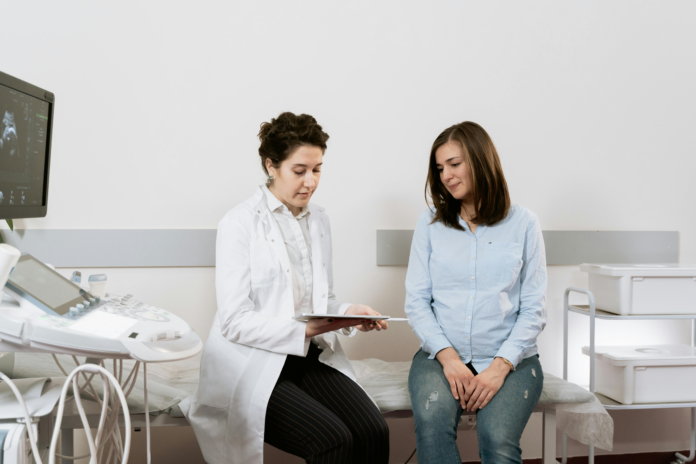Gynecological exams are essential for monitoring women’s reproductive and overall health. These checkups help detect problems early—such as infections, cancers, or hormonal imbalances—and ensure that a woman’s reproductive system is functioning properly. But many women are unsure how frequently they should go. The answer depends on age, medical history, sexual activity, and overall health status.
General Recommendation for Routine Visits
Most healthcare providers recommend that women visit a gynecologist at least once a year for a general wellness exam. These yearly visits allow:
- Physical and pelvic examination
- Breast health screening
- Discussion of menstrual cycles and symptoms
- Screening for infections or abnormalities
Even if you’re not experiencing any problems, regular visits help maintain your health and detect issues early.
First Visit: When Should It Happen?
According to experts, a girl’s first gynecological visit should be between ages 13 and 15, particularly if she has:
- Started menstruating
- Concerns about her cycle or body
- Questions about puberty or sexual health
This early visit is usually educational and may not include a pelvic exam unless needed.
Pap Smears and Cervical Cancer Screening
A key part of gynecological care is the Pap smear, which checks for cervical cell changes that could lead to cancer. Guidelines suggest:
- Start Pap smears at age 21
- Repeat every 3 years if results are normal
- After age 30, combine with HPV testing every 5 years (or continue Pap alone every 3 years)
- After age 65, testing may stop if previous tests were normal
These timelines may change based on personal risk or past abnormal results.
Pelvic Exams
A pelvic exam checks the reproductive organs for abnormalities. It may include:
- Visual inspection
- Manual examination of uterus and ovaries
- Testing for infections
Pelvic exams are not always needed yearly unless symptoms arise or if you’re over 21. Your doctor may recommend them based on your sexual activity or history of gynecologic conditions.
Breast Exams
Clinical breast exams are typically included in your yearly gynecological visit. Doctors look for:
- Lumps or irregularities
- Skin or nipple changes
- Family history of breast cancer
Mammograms may be recommended beginning at age 40–50 depending on risk factors.
STI Screenings
If you’re sexually active, regular STI testing is important. You may need screenings:
- Annually if under age 25
- Regularly if you have new or multiple partners
- Immediately if you show symptoms (discharge, burning, sores, etc.)
STI screening can be done during routine exams and often includes urine, blood, or swab tests.
Menopause and Postmenopausal Women
Women who have reached menopause should still see a gynecologist annually for monitoring changes, such as:
- Vaginal dryness
- Urinary problems
- Hormonal imbalance
- Bone health and osteoporosis risk
Pap smears and pelvic exams may be reduced depending on age and health status, but regular checkups remain vital.
Women With Specific Conditions May Need More Frequent Visits
Women with chronic gynecological issues may need to see their doctor more often. These conditions include:
- Polycystic ovary syndrome (PCOS)
- Endometriosis
- Uterine fibroids
- Abnormal bleeding or pain
Your gynecologist will determine the best follow-up schedule for your individual case.
Pregnancy and Postpartum Care
During pregnancy, women see their obstetrician or gynecologist frequently—usually every 4 weeks in early pregnancy, increasing as delivery approaches. Postpartum checkups are also critical to monitor:
- Healing and recovery
- Breastfeeding challenges
- Mental health and hormonal changes
Pregnancy care is tailored based on individual and fetal health needs.
Conclusion
Most women should see a gynecologist once a year for a routine exam, even if no symptoms are present. These visits play a key role in prevention, early diagnosis, and long-term reproductive health. Depending on your age, medical history, and lifestyle, your doctor may recommend more or less frequent visits. Staying consistent with exams can help ensure your overall health remains in check.
FAQs
Can I skip my gynecologist visit if I feel healthy?
No. Many gynecological issues show no early symptoms. Regular exams catch problems early, even if you feel fine.
At what age can I stop seeing a gynecologist?
Even after menopause, women should continue checkups, although frequency and procedures may reduce.
What happens during a routine gynecological exam?
It usually includes a discussion, breast exam, pelvic exam, and possibly Pap smear or STI screening.
Is it okay to delay a Pap smear if I missed it?
Delaying one Pap is not critical, but regular testing ensures cervical cancer is caught early. Reschedule as soon as possible.
Are gynecological visits painful?
Most exams are quick and only mildly uncomfortable. You can discuss concerns with your doctor beforehand.

